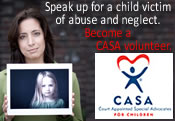Health experts urge caution while celebrating, give tips to keep kids safe
July 2, 2021 – Fireworks sales increased in 2020, when many community firework displays across the nation were cancelled because of COVID-19 pandemic. Unfortunately, the nation also saw severe injuries and deaths from fireworks increase as well. More than 15,000 people were treated in hospital emergency departments for fireworks injuries, according to the Consumer Product Safety Commission, and at least 18 people died. Of those injured, roughly 1,100 were under age 5, another 1,400 were ages 5 to 14.
Nacogdoches Medical Center health experts want to remind the East Texas community to stay safe this 4th of July weekend so they can enjoy the holiday and not end up in the Emergency Room.
Modupe A. Sokunbi, M.D., FAAP, pediatric specialist and chief of staff at Nacogdoches Medical Center, said that fireworks are best left to the professionals. “Even sparklers, although they may seem harmless, can still burn hot enough to melt metals and ignite clothing on fire or cause injury to the face or eyes,” Dr. Sokunbi said.
Research indicates that of the children injured across the nation by fireworks, about 1,100 were under age 5, and another 1,400 were ages 5 to 14. Parts of the body most often burned or wounded are hands and fingers, head, face, and ears, eyes, legs and arms.
In addition to fireworks injuries, Dr. Sokunbi said that children can suffer from heat-related injuries if they do not keep hydrated while playing outdoors in the sun and can perish if left unattended in a vehicle. Children can also sustain severe sunburn if they are not wearing sunscreen. Pools and bodies of water can also be danger zones if children are not supervised properly. Among unintentional injuries, drowning is the leading cause of death in children ages 1 – 4 years.
Dr. Sokunbi said that constant, focused adult supervision at lakes or pools and around fireworks is a must for keeping children safe. “Securing pools with gates and barriers will help prevent accidents and parents. Supervisors who learn CPR can save lives when a child is drowning,” she said. Dr. Sokunbi also noted that children who learn to swim early on will benefit as well from water safety training.
As the COVID-19 virus and its variants remain a threat in our communities, Dr. Sokunbi recommends continued mask wearing and social distancing for parents and children who venture out to events where large crowds will be gathered. “Masks will protect children who are too young to be vaccinated from the COVID-19 virus and will also protect them from the flu or other common childhood illnesses they could contract from others,” Dr. Sokunbi added.









